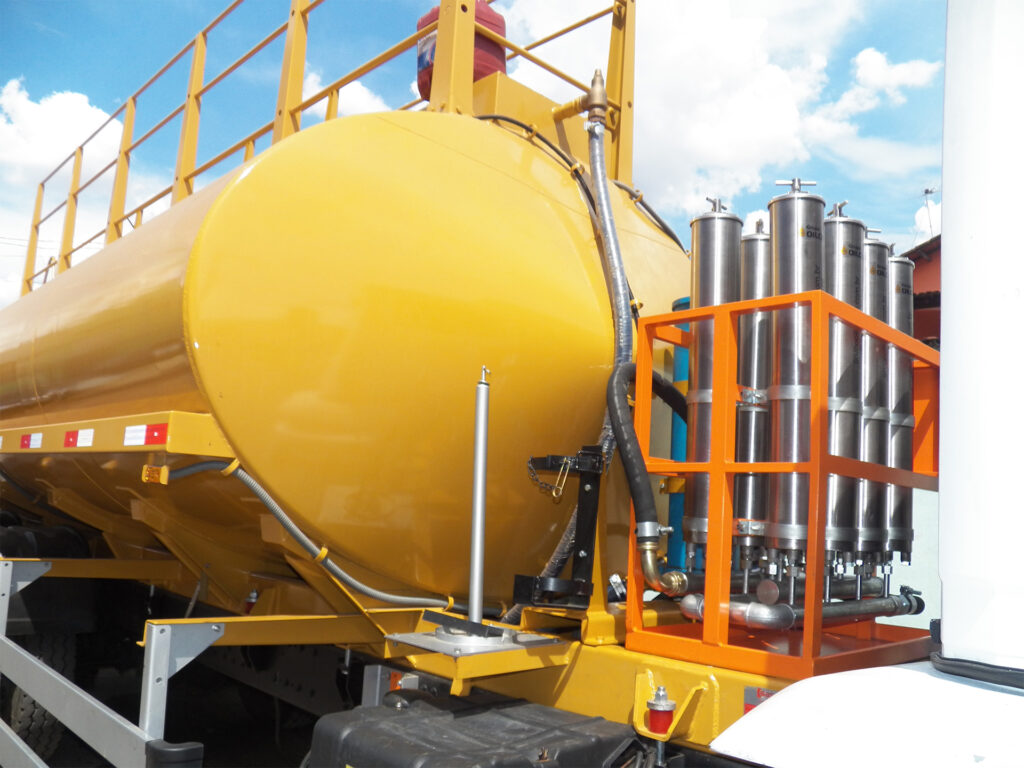In order to remain increasingly competitive in the market, companies that have large fleets and heavy equipment must include preventive and corrective controls for lubricants and their additives in their strategic planning. Filtration is one of the most effective alternatives for increasing the service life of fluids. But it doesn’t stop there: oil microfiltration is also essential for the operation. Understand more about this below.
Oil microfiltration
It may not seem like it, but the small particles are the ones that cause the most serious problems in the performance of the lubricating oil. In a common filtration process, it is not possible to identify very small solid contaminations. The precision of microfiltration makes it possible to guarantee a more effective retention, capturing particles up to two microns in size. But how does oil microfiltration work?
In this thorough oil filtering process, the fluid is passed through a set of filters capable of completely eliminating contaminating particles. Microfiltration is an Australian oil filtration technology, capable of retaining approximately 900 grams of solid contaminants and also removing sludge from the fluid.
Many people do not know, but the new oils are naturally contaminated by the manufacturer. Therefore, it is not only the oil already used that needs to undergo the microfiltration procedure.
5 reasons to invest in microfiltration
Now that the process and its importance are clear, it’s time to learn about the main benefits of oil microfiltration for heavy machinery and equipment in your company’s fleet.
1. Prevents wear and tear
When there is contamination, it is normal that the equipment is more required, increasing fuel consumption and, consequently, increasing the need for prolonged use of the engine. With microfiltered oil and free of solid contaminants, the smooth operation of the fleet is guaranteed, eliminating the need for unnecessary stops, making the equipment work more continuously and for an extended period.
2. Reduced maintenance costs
Predictive maintenance tools, such as microfiltration, anticipate problems and identify the life span of machine components. For this reason, this thorough type of oil filtration becomes essential in preventing engine failures due to contamination. A filtered oil is synonymous with components with up-to-date health, without compromising the production cycle and the company’s results. In addition to this benefit, it is also important to note that predictive maintenance costs are lower than investment in unscheduled repairs.
3. Increased machine availability
Normally, a company’s production is stopped while part of its fleet undergoes unscheduled repairs (corrective maintenance). Obviously, downtime will compromise the entire production of the day. However, microfiltration can be applied while the equipment is in operation.
4. Increased component life
A contamination-free oil ensures less wear on parts and components, extending the life of the entire fleet.
5. Less impact on the environment
Often, companies do not properly dispose of the oil: often, fluids are dumped into nature, causing major environmental impacts. An ecologically correct practice is the reuse of oil, made possible by microfiltration. In addition to preserving nature, the company also reduces costs with changing the fluid.
Be sure to perform oil microfiltration
The smallest particles are the biggest villains for the health of the lubricating oil, generating expenses, production gaps and other headaches for the managers of the companies. Microfiltration technology appears as a cost-effective option to prevent this scenario from being a constant in your company.
Always count on POC Filters to solve your doubts about oil filtration and microfiltration. Get a free consultation now!




